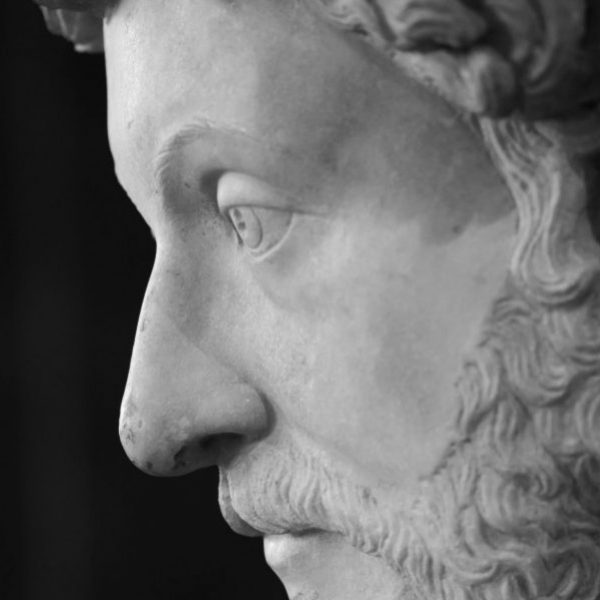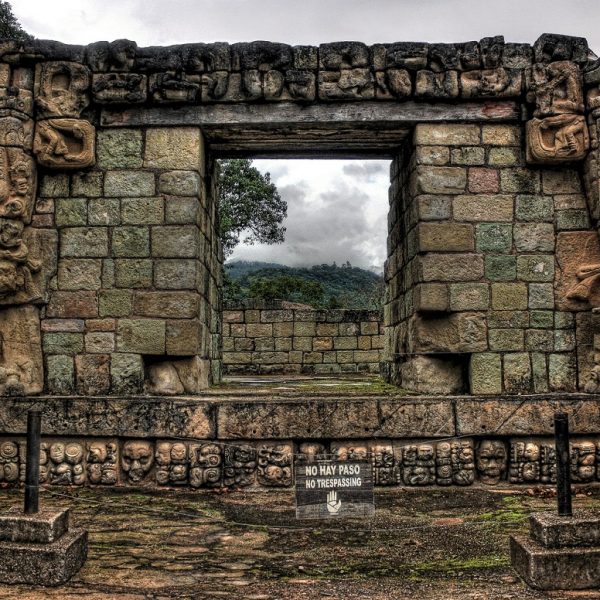Nigel Warburton on René Descartes
 An excerpt from Nigel Warburton’s A Little History of Philosophy, a lively and accessible introduction to Western philosophy, bringing the ideas of the world’s greatest thinkers into focus. from Socrates’ questions about reality to Peter Singer’s thinking on the moral status of animals in our own times.
An excerpt from Nigel Warburton’s A Little History of Philosophy, a lively and accessible introduction to Western philosophy, bringing the ideas of the world’s greatest thinkers into focus. from Socrates’ questions about reality to Peter Singer’s thinking on the moral status of animals in our own times.
Nigel Warburton—
You hear the alarm, turn it off, crawl out of bed, get dressed, have breakfast, get ready for the day. But then something unexpected happens: you wake up and realize that it was all just a dream. In your dream you were awake and getting on with life, but in reality you were still curled up under the duvet snoring away. If you’ve had one of these experiences you’ll know what I mean. They’re usually called ‘false awakenings’ and they can be very convincing. The French philosopher René Descartes (1596–1650) had one and it set him thinking. How could he be sure that he wasn’t dreaming?
For Descartes philosophy was one among many intellectual interests. He was an outstanding mathematician, perhaps best known now for inventing “Cartesian co-ordinates” – allegedly after watching a fly walking across the ceiling and wondering how he could describe its position at various points. Science fascinated him too, and he was both an astronomer and a biologist. His reputation as a philosopher rests largely on his Meditations and his Discourse on Method: books in which he explored the limits of what he could possibly know.
 Like most philosophers, Descartes didn’t like to believe anything without examining why he believed it; he also liked asking awkward questions, questions which other people didn’t get round to asking. Of course Descartes recognized you couldn’t go through life constantly questioning everything. It would be extremely difficult to live if you didn’t take some things on trust most of the time, as Pyrrho no doubt discovered (see Chapter 3). But Descartes thought it would be worth trying once in his life to work out what – if anything – he could know for certain. To do this he developed a method. This is known as the Method of Cartesian Doubt.
Like most philosophers, Descartes didn’t like to believe anything without examining why he believed it; he also liked asking awkward questions, questions which other people didn’t get round to asking. Of course Descartes recognized you couldn’t go through life constantly questioning everything. It would be extremely difficult to live if you didn’t take some things on trust most of the time, as Pyrrho no doubt discovered (see Chapter 3). But Descartes thought it would be worth trying once in his life to work out what – if anything – he could know for certain. To do this he developed a method. This is known as the Method of Cartesian Doubt.
The method is quite straightforward: don’t accept anything as true if there is the slightest possibility that it isn’t. Think of a big sack of apples. In the sack you know there are some mouldy apples, but you’re not sure which ones they are. What you want to end up with is a sack containing just good apples and no mouldy ones. How would you go about achieving that result? One way would be to tip all the apples on to the floor and then look at them one at a time, only putting the ones that you were absolutely sure were good back into the bag. You might throw out a few good apples in the process because they looked as if they might possibly be a bit mouldy inside. But the consequence would be that only good apples would make it into your sack. That’s more or less what Descartes’ Method of Doubt is. You take a belief, such as ‘I am awake reading this now’, examine it, and only accept it if you are certain it can’t be wrong or misleading. If there is the tiniest room for doubt, reject it. Descartes went through a number of things he believed, and questioned whether or not he was absolutely certain that they were as they seemed to be. Was the world really the way it looked to him? Was he sure he wasn’t dreaming?
What Descartes wanted to find was one thing that he could be sure about. That would be enough to give him a foothold on reality. But there was a risk that he might sink into a whirlpool of doubt and end up realizing that nothing at all was certain. He used a kind of sceptical move here, but it differed from the scepticism of Pyrrho and his followers. They were intent on showing that nothing could be known for certain; whereas Descartes wanted to show that some beliefs are immune from even the strongest forms of scepticism.

Descartes sets out in his quest for certainty by thinking first about the evidence that comes through the senses: seeing, touching, smelling, tasting and hearing. Can we trust our senses? Not really, he concluded. The senses sometimes trick us. We make mistakes. Think about what you see. Is your sight reliable about everything? Should you always believe your eyes?
A straight stick put in water seems bent if you look at it from the side. A square tower in the distance might look round. We all occasionally make mistakes about what we see. And, Descartes points out, it would be unwise to trust something that has tricked you in the past. So he rejects the senses as a possible source of certainty. He can never be sure that his senses aren’t tricking him. They probably aren’t most of the time, but the faint possibility that they might be means he can’t completely rely on them. But where does that leave him?
Excerpted from Chapter 11: “Could You Be Dreaming?: René Descartes” in A Little History of Philosophy, by Nigel Warburton. Copyright © 2011 by Nigel Warburton.



